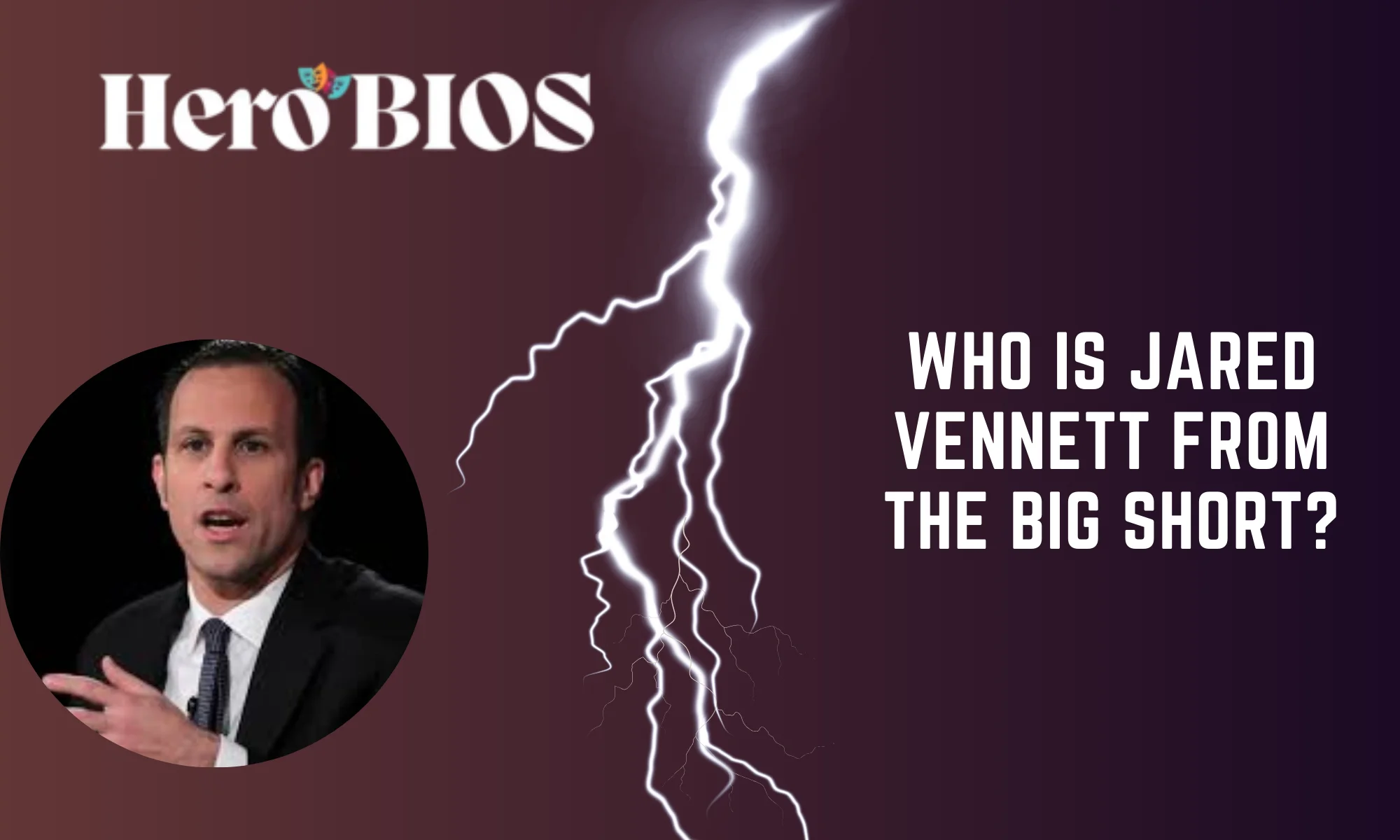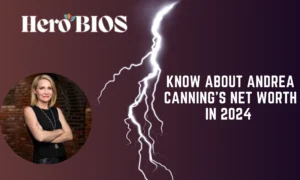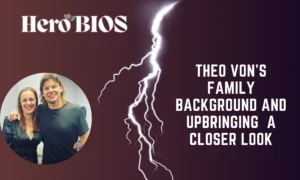The Big Short (2015) brought to life the complex world of the 2008 financial crisis, where financial traders and hedge fund managers saw what was coming long before the rest of the world did. At the center of this whirlwind of mortgage-backed securities, credit default swaps (CDS), and collapsing housing markets, stands the character of Jared Vennett—a key player who made bold predictions and bets against the subprime mortgage market. Played by Ryan Gosling, Vennett is one of the standout characters in the movie. But who is Jared Vennett, and what is his connection to the real-world crisis?
In this post, we’ll dive deep into the story behind Jared Vennett, explore the real-life inspiration for the character, and uncover the complex events surrounding the 2008 financial crisis, all while separating fact from fiction.
The Big Short: A Cinematic Powerhouse

The Big Short is more than just a movie; it’s a powerful, Academy Award-winning adaptation of Michael Lewis’s best-selling book. Directed by Adam McKay, the film takes an insightful yet entertaining look at the 2008 financial crisis. Through humor, fourth-wall-breaking commentary, and sharp performances, it dives deep into the collapse of the housing market and the people who saw it coming.
Jared Vennett, portrayed by Ryan Gosling, is a critical character in the story. His role as a sharp and charismatic Deutsche Bank trader who identifies the opportunity to profit from the imminent collapse of subprime mortgages allows the audience to navigate the complex world of high finance. Vennett is presented as an extremely knowledgeable figure, offering not just insight into the financial mechanisms at play, but also providing a way for the audience to engage with the often daunting world of Wall Street.
Who is Jared Vennett?
Jared Vennett is a fictionalized version of Greg Lippmann, a Deutsche Bank trader whose bold bets against the U.S. housing market earned him significant attention. In the film, Vennett is portrayed as a brash, confident, and sometimes morally ambiguous individual, capable of making tough, unpopular financial decisions.
Vennett’s pivotal role in The Big Short is clear: he is one of the few people who foresaw the collapse of the housing market and had the foresight to place a massive bet against the housing market using credit default swaps (CDS). His character is driven by a mix of financial acumen, a desire for profit, and a clear understanding of the dangers lurking within the financial markets.
Throughout the movie, Vennett’s character is portrayed as a hustler, a wheeler-dealer who doesn’t hesitate to make high-stakes financial decisions. He acts as a guide to other key players, such as Michael Burry (played by Christian Bale), Mark Baum (played by Steve Carell), and others who are also betting against the financial system.
Is Jared Vennett Based on a Real Person?

Yes, Jared Vennett is based on a real person: Greg Lippmann, a former trader at Deutsche Bank. While The Big Short takes creative liberties to dramatize events, the character of Vennett is a thinly veiled version of Lippmann, who played a crucial role in predicting the housing market collapse.
The movie compresses and simplifies many aspects of Lippmann’s role for the sake of storytelling, but the essence of the character remains true to his real-life counterpart. Lippmann was one of the first to recognize the flaws in the mortgage market and was pivotal in bringing attention to the housing bubble’s potential to burst. Just like Vennett, Lippmann’s big bet against subprime mortgages turned out to be highly lucrative, earning him significant financial rewards in the aftermath of the crisis.
Greg Lippmann: The Man Behind the Character
Greg Lippmann’s Background
Greg Lippmann was born in the United States and earned his stripes on Wall Street. He worked at Deutsche Bank as a trader, where he became one of the leading figures in the financial crisis. Lippmann was known for his sharp analysis of mortgage-backed securities and his ability to predict market collapses.
Before the 2008 financial crisis, Lippmann was recognized as an expert in collateralized debt obligations (CDOs) and subprime mortgages, financial products that were central to the housing bubble and its eventual burst. Unlike many of his colleagues, Lippmann had an instinctive feeling that the U.S. housing market was highly unstable and would eventually collapse.
Lippmann’s Role in the 2008 Financial Crisis
Lippmann’s role in the crisis came when he began to advocate for shorting mortgage-backed securities. He was one of the first traders to bet against subprime mortgages by purchasing credit default swaps (CDS) — a type of insurance on these risky financial products. As the housing bubble began to burst, Lippmann and others who followed his lead profited immensely.
His bold strategy of betting against the mortgage market earned him both recognition and scorn. While many of his peers were oblivious to the risks associated with subprime mortgages, Lippmann and a few other traders saw the opportunity to profit from the impending collapse. This foresight made him a key player in the story of the financial crisis, and his predictions turned out to be uncannily accurate.
What Has Greg Lippmann Done Since The Big Short?
Since the 2008 financial crisis, Greg Lippmann has remained a prominent figure in the financial world. After leaving Deutsche Bank in 2010, he co-founded LibreMax Partners, a hedge fund that focuses on distressed debt and credit trading.
Lippmann has also been an advocate for financial reform and has spoken openly about the need for greater regulation and oversight in the financial markets to prevent another crisis. In addition to his financial career, Lippmann has been involved in various philanthropic ventures and serves on the board of the South Fork Natural History Museum and as an advisor to the American Museum of Natural History.
How Did Greg Lippmann Feel About Being Played by Ryan Gosling?
In interviews, Lippmann has expressed mixed feelings about his portrayal in The Big Short. While he appreciated the film’s ability to bring attention to the complexity of the financial crisis, he also acknowledged that the character of Jared Vennett was a dramatized version of himself. Lippmann noted that while Ryan Gosling’s portrayal captured his sense of confidence and enthusiasm, it also magnified certain aspects of his personality for comedic effect.
However, Lippmann also appreciated how the film highlighted the critical nature of his actions and decisions during the crisis. His role in shorting the mortgage market, while ethically questionable in the eyes of some, was presented in the movie as a means of exposing the deep flaws in the financial system.
The Legacy of Jared Vennett / Greg Lippmann

Both the character of Jared Vennett and Greg Lippmann have left lasting legacies in the world of finance. The 2008 financial crisis fundamentally changed how markets are regulated and how risk is assessed.
Lippmann’s legacy is marked by his ability to recognize systemic risks in the housing market and his boldness in betting against it. He was among the few who saw the disaster coming and had the courage to act. His story, immortalized in The Big Short, serves as a reminder of the risks of financial speculation and the dangers of unchecked market behavior.
Vennett’s character, as portrayed by Gosling, has since become an iconic figure in the film, symbolizing the opportunistic traders who profited from the crisis. The legacy of Jared Vennett is tied to his role in making complex financial instruments like credit default swaps more accessible to the general public and illustrating the high-stakes nature of the financial industry.
FAQs
Who is Jared Vennett in The Big Short?
Jared Vennett is a fictional character in The Big Short, portrayed by Ryan Gosling. He is based on the real-life figure Greg Lippmann, a Deutsche Bank trader who recognized the flaws in the U.S. housing market leading up to the 2008 financial crisis.
2. Who is Greg Lippmann in real life?
Greg Lippmann is a former trader at Deutsche Bank who is widely credited with predicting the collapse of the housing market. He helped popularize the use of credit default swaps (CDS) as a way to bet against subprime mortgages before the 2008 financial crisis.
3. How accurate is The Big Short movie in its portrayal of Jared Vennett?
While The Big Short takes creative liberties, Jared Vennett’s character is largely based on Greg Lippmann’s actions during the housing market collapse. Many of the financial concepts, like credit default swaps, are accurately portrayed, but some events are dramatized for cinematic effect.
4. What role did Jared Vennett play in the 2008 financial crisis?
Jared Vennett (based on Greg Lippmann) played a crucial role by identifying the impending collapse of the housing market and selling credit default swaps (CDS) on mortgage-backed securities. His actions helped hedge funds and other investors profit from the crisis.
5. What are credit default swaps (CDS)?
A credit default swap is a financial derivative that functions like insurance against the default of debt. In the context of the 2008 financial crisis, CDSs were used to bet against the housing market and the subprime mortgage bonds that were tied to it.
6. What is The Big Short movie about?
The Big Short is a film based on Michael Lewis’ book, chronicling the true story of a few savvy investors who foresaw the 2008 financial crisis and made significant profits by betting against the housing market’s collapse using financial instruments like credit default swaps.
7. What happened during the 2008 financial crisis?
The 2008 financial crisis was triggered by the collapse of the U.S. housing market, driven by subprime mortgages, risky financial products (like mortgage-backed securities), and widespread financial mismanagement. It led to a global recession, massive bailouts, and major reforms in the financial sector.
8. How did The Big Short depict the financial crisis?
The film portrays the 2008 financial crisis through the eyes of individuals who recognized the impending collapse of the housing market. It dramatizes the use of credit default swaps, the creation of mortgage-backed securities, and the unethical practices of Wall Street firms.
9. What is a subprime mortgage?
A subprime mortgage is a type of home loan given to borrowers with poor credit histories. These loans are considered high-risk because the borrowers are less likely to be able to repay them, and they were a key factor in the 2008 housing market crash.
10. Who is Michael Burry in The Big Short?
Michael Burry, portrayed by Christian Bale, is a real-life hedge fund manager who predicted the 2008 financial crisis. In the film, he is shown using his fund, Scion Capital, to bet against the housing market by purchasing credit default swaps on mortgage-backed securities.
11. Who played Jared Vennett in The Big Short?
Jared Vennett was portrayed by actor Ryan Gosling in The Big Short. Gosling’s performance brings the character’s confident and sharp-tongued personality to life, contributing significantly to the film’s success.
12. How did Jared Vennett profit from the housing market collapse?
Vennett, like Greg Lippmann, saw the flaws in the mortgage market and used credit default swaps to bet against mortgage-backed securities. When the market collapsed, these financial instruments soared in value, and Vennett profited immensely.
13. What is the legacy of The Big Short film?
The Big Short left a lasting impact by educating the public about the 2008 financial crisis and the complex financial products that contributed to it. It also sparked discussions about the ethical and systemic issues that led to the collapse of the housing market.
14. How did Wall Street contribute to the 2008 financial crisis?
Wall Street’s role in the financial crisis involved the creation and trading of risky mortgage-backed securities, the promotion of subprime mortgages, and the use of complex financial products like CDOs and CDS. These practices fueled the housing bubble and its eventual burst.
15. What are Collateralized Debt Obligations (CDOs)?
CDOs are financial products that pool various types of debt, including subprime mortgages, and then divide them into tranches or layers of risk. These complex securities were heavily involved in the 2008 financial crisis, as they spread the risk of mortgage defaults across global financial markets.
16. What is the impact of the 2008 financial crisis on society?
The financial crisis caused widespread job losses, home foreclosures, and significant economic hardship for millions of people. It also led to increased poverty, a slower recovery for some communities, and a reevaluation of global financial practices.
17. What was the role of Deutsche Bank in the 2008 financial crisis?
Deutsche Bank, where Greg Lippmann worked, was one of the financial institutions involved in the creation and trading of mortgage-backed securities and derivatives like credit default swaps. Lippmann’s foresight about the housing bubble helped the bank position itself to profit from the collapse.
18. What are the financial reforms after the 2008 crisis?
In response to the 2008 financial crisis, governments worldwide implemented several financial reforms, including the Dodd-Frank Wall Street Reform and Consumer Protection Act in the U.S. These reforms aimed to increase transparency, reduce systemic risk, and protect consumers from predatory lending practices.
19. How does The Big Short depict Hollywood’s interpretation of real events?
The Big Short uses humor, quirky narration, and dramatic moments to make complex financial topics more accessible to viewers. While some events are fictionalized or exaggerated, the film does an effective job of portraying the systemic failures and individual foresight that led to the 2008 crisis.
20. What is the significance of the character of Jared Vennett in The Big Short?
Jared Vennett serves as a critical character in The Big Short, acting as a catalyst for the unfolding financial crisis narrative. His character’s sharp business acumen and role in exposing the flawed housing market make him integral to understanding the larger story of economic collapse and the eventual profiteering that took place.
These FAQs aim to provide clarity on the main topics related to Jared Vennett, Greg Lippmann, and the financial instruments involved in the 2008 crisis, offering valuable insights into the real-world events and their cinematic adaptation in The Big Short.
Conclusion: Fact vs. Fiction in The Big Short
In The Big Short, the line between fact and fiction is often blurred, and Jared Vennett is a perfect example of this. While the character is based on real-life Greg Lippmann, the movie takes creative liberties to condense the events of the 2008 financial crisis into a digestible, entertaining narrative.
Lippmann’s real-life role in the crisis was one of foresight, boldness, and a deep understanding of the flaws within the financial system. His decision to short the housing market was both a financial triumph and a moral dilemma, as it highlighted the stark inequalities and risks present in Wall Street’s speculative culture.
Ultimately, the legacy of Jared Vennett and Greg Lippmann is one of controversy and admiration. Their story serves as a cautionary tale about the dangers of unchecked financial markets while also showcasing the foresight and knowledge required to navigate them.
As audiences continue to watch The Big Short, the character of Jared Vennett will likely remain a symbol of the financial crisis, a complex figure in a world driven by high-stakes decisions. While the movie may not be entirely faithful to every detail, it succeeds in highlighting the essential truths behind the 2008 housing collapse and the characters who dared to bet against it.










